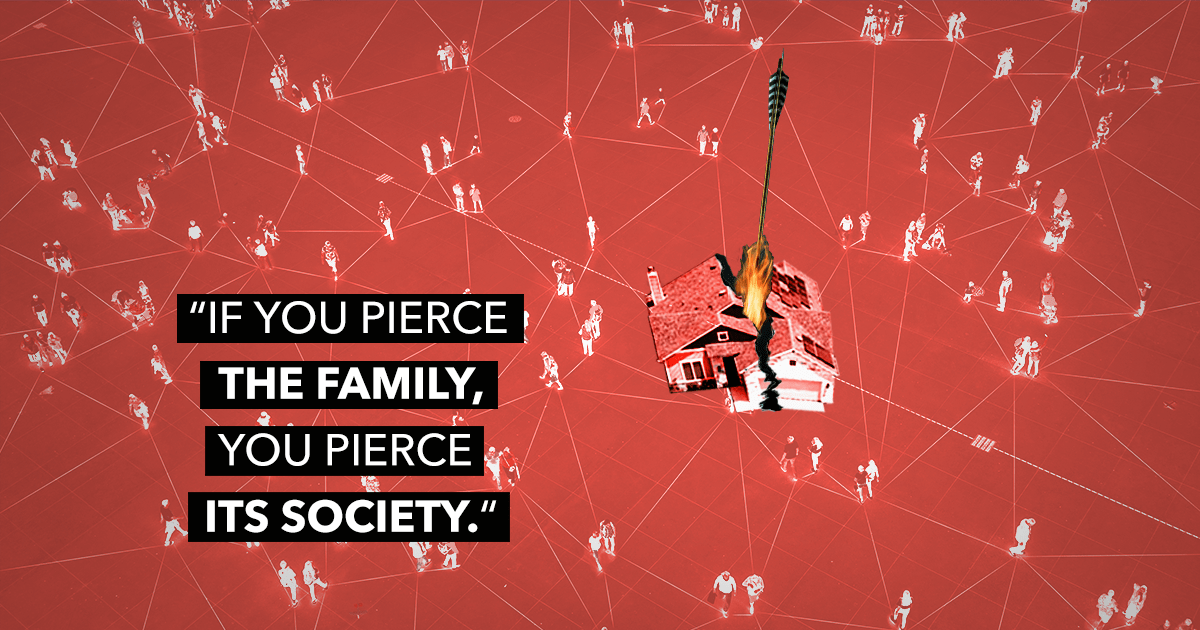One of the most difficult things to do is to love ourselves. Often, we are our own worst critics. We see our flaws; we know our faults. And, for some reason, we choose to focus more on what we've done wrong than what we've done right.
While it's true that our current culture is largely focused on self (sometimes to the point of narcissism), there are many people who struggle with loving themselves. They feel inadequate and unworthy.
Sometimes the lens through which we view ourselves can get foggy or distorted.
Having too low of an opinion of ourselves can lead to discouragement or depression—and it can hold us back from loving others. On the converse, thinking of ourselves too highly can lead to pride and being self-centered.
There are many reasons why it's hard to love ourselves. Perfectionism can play a part, when we mistakenly think that we're "not enough"—-not good enough, thin enough, smart enough, or something else.
Sometimes we feel like we've done so many bad things that we feel unworthy of love. A bad childhood or other traumatic life event can also make us feel abandoned, ignored, or worthless.
Then there's the admonition that we are to love others, which is good and true. But when "doing things for others" is taken to an extreme, we may lose our sense of self. Those who give and serve excessively can get totally burned out. In essence, we can forget that we are to love others as we love ourselves. (Matthew 22:39)
When we learn that it's okay—even biblical—to love ourselves, we have a wellspring of love and joy from which to give and serve.
So how do you love yourself in a healthy and balanced way? The answer is not focusing more on self, but looking to God for your true worth and value.
Know your true identity
Your identity, who you really are, is based on what God says about you, not the culture, and not what other people say. The One who created you gave you infinite worth and value. In fact, you were created by God, in the image of God, for His good purposes.
No matter who you are or what you've done, God loves you. And when you confess your wrongdoings to Him, He forgives you. Then He forgets and never brings it up again. You are forgiven, free, and loved!
Here are just a few examples of who you are in Christ. You are:
Accepted. Romans 15:7
Dearly Loved. Colossians 3:12
Chosen. Ephesians 1:11
A Friend of God. John 15:15
Precious and Honored. Isaiah 43:4
A Child of God. John 1:12
His Workmanship. Ephesians 2:10
The Light of the World. Matthew 5:14
Be kind to yourself
Here are some other ideas for increasing your sense of self-love and acceptance:
Accept your imperfections. Part of love is acceptance, and being okay with your weak areas. It's not always easy, but aim to look at your flaws as what makes you unique and special. Change what you can, and accept what can't be changed.
Treat yourself with kindness. Sometimes we're too hard on ourselves. Instead of being critical, choose to treat yourself with respect, kindness, and compassion—the way you'd treat a good friend.
Don't compare yourself to others. Focus on your strengths and what you do well. You can also develop new skills or habits to help you grow. It doesn't matter what other people are doing. You have your own path. You are uniquely created by God for His good purposes.
Prioritize your needs and take care of your own emotional and physical well-being. Make time to do things you love and enjoy.
Self-love and relationships
How does learning to love yourself more play out in relationships, especially dating relationships?
Loving yourself means you can be yourself, not an exact replica of the person you're dating. You can have your own opinions and preferences. You have the confidence to ask for what you need. And, you "speak the truth in love." (Ephesians 4:15)
You know you are worth being loved well, and treat others in a loving way.
You decline kindly and graciously when you don't want to spend time with someone who asks you out, instead of leading him or her on by trying to be nice.
You have enough self-respect not to grovel when the person you were dating wants to break up. You learn from your past mistakes about what you don't want and what you can't live without in a relationship.
You have boundaries—physical and emotional—for how others will or will not treat you.
You know your values and look for someone who shares them, and will respect them.
Of course, relationships are give and take. It's about both people respecting each other, loving each other, and getting their needs met.
As you look to the Lord for your true worth and identity, you will grow in loving and accepting yourself more. You are already enough. And you are loved.
Coming up: The next post in the Love 101 series (coming July 15), will feature a guest post from Dawson McAllister on "How to Know You're in Love."
Jackie M. Johnson is an author and blogger who writes inspiring content on growing a better life, the power of prayer, and encouragement for singles. Jackie has a heart to encourage single adults of all ages, and she has led numerous small groups and Bible studies for singles. Her books include the breakup recovery guide, When Love Ends and the Ice Cream Carton Is Empty, Power Prayers for Women, and Praying with Power When Life Gets Tough. Connect with Jackie at JackieJohnsonCreative.com.












